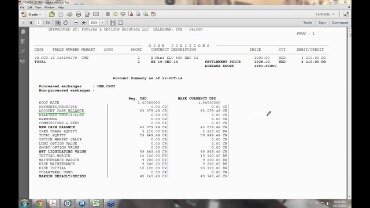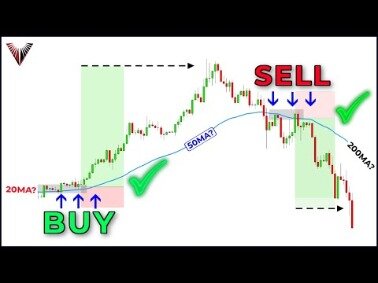

Individual investors can set up a brokerage account to either purchase shares of businesses directly or buy into a pool of money called a fund that chooses and buys companies for them. When you buy a stock in your brokerage account, you are buying a fractional share of the business. The broker works with the exchange and other intermediaries to buy and sell stocks. These developments have given new impetus to the discussion about the role of institutional investors in capital allocation and as owners of publicly listed companies. Capital markets are the physical and electronic markets where equity and debt securities, commodities, and other investments are sold to investors. A stock market is a particular category of the capital market that only trades shares of corporations.
After issuing a prospectus the public starts investing in shares, debentures, etc. In case the subscriptions are high, allotment is done on a pro-rata basis. One of the most famous examples of a company using a derivatives market is Southwest hedging future oil prices. Over the years, Southwest has stayed competitive as one of the industry’s low-cost providers by selectively hedging its jet fuel costs. When other airlines suffered from high jet fuel costs, Southwest raked in millions in gains on its futures contracts.
What are Capital Markets?
The bank then acts as an underwriter, and will arrange for a network of brokers to sell the bonds or shares to investors. This second stage is usually done mostly through computerized systems, though brokers will often phone up their favored clients to advise them of the opportunity. Companies can avoid paying fees to investment banks by using a direct public offering, though this is not a common practice as it incurs other legal costs and can take up considerable management time. Regular bank lending is not usually classed as a capital market transaction, even when loans are extended for a period longer than a year. First, regular bank loans are not securitized (i.e. they do not take the form of a resaleable security like a share or bond that can be traded on the markets).
- CFDs are complex instruments and come with a high risk of losing money rapidly due to leverage.
- As part of the capital markets, the ECM, leads, in theory, to the efficient allocation of resources within a market economy.
- Typically, large volumes are put up for sale in one go; a government may only hold a small number of auctions each year.
- Companies issue stocks and bonds to raise money to grow their businesses.
This https://forex-world.net/ not only helps investors, but also the corporations whose securities are being traded. The instruments used in the money markets include deposits, collateral loans, acceptances, and bills of exchange. Institutions operating in the money markets include the Federal Reserve, commercial banks, and acceptance houses.
What Is a Capital Markets Group?
On the other hand, a new issue of shares will dilute the ownership rights of the existing shareholders, and if they gain a controlling interest, the new shareholders may even replace senior managers. From an investor’s point of view, shares offer the potential for higher returns and capital gains if the company does well. Conversely, bonds are safer if the company does poorly, as they are less prone to severe falls in price, and in the event of bankruptcy, bond owners may be paid something, while shareholders will receive nothing. The secondary market includes venues overseen by a regulatory body like the SEC where these previously issued securities are traded between investors. The New York Stock Exchange and Nasdaq are examples of secondary markets. Examples of highly organized capital markets are the New York Stock Exchange, American Stock Exchange, London Stock Exchange, and NASDAQ.
Short-term InvestmentsShort term investments are those financial instruments which can be easily converted into cash in the next three to twelve months and are classified as current assets on the balance sheet. Most companies opt for such investments and park excess cash due to liquidity and solvency reasons. Equity capital is raised by issuing shares in the company, publicly or privately, and is used to fund the expansion of the business. From syndicated loans to import solutions and integrated receivables, capital markets groups offer universal, strategic advice and solutions that make a significant difference in their clients’ futures. Capital markets groups are also responsible for investment banking services and the issuance of a company’s securities. Accordingly, capital market regulation is intended to protect the public interest, which operates on the need to foster economic development and confidence, which in turn can boost inward investment.
capital markets definition markets play a significant part in economics as they supply funding for long-term investment and improvement, which contributes to economic growth. Others are decentralized and traded between market participants without an exchange or a broker, such as debt securities, commodities, and other derivatives. The transactions are facilitated by investment bankers, lawyers, and accountants who ensure that the ownership transfer is legally executed and that enough investors are willing to invest their capital into the company. The idea of governments making investments may be less familiar than the case involving companies.

Primary equity markets refer to raising money from private placement and mainly involves OTC markets. Capital markets groups help companies raise capital and assemble financing through a broad range of sophisticated solutions. Usually spearheaded by senior-level bankers with long-standing industry, these groups help companies structure and execute financing solutions.
Corporate bond markets
In contrast, the “capital markets” are used for the raising of long-term finance, such as the purchase of shares/equities, or for loans that are not expected to be fully paid back for at least a year. The equity capital market, where financial institutions help companies raise equity capital, comprises the primary market and secondary market. Suppliers include households as well as institutions like pension and retirement funds, life insurance companies, charitable foundations, and non-financial companies that generate excess cash.
A capital market can be either a primary market or a secondary market. In a primary market, new stock or bond issues are sold to investors, often via a mechanism known as underwriting. The main entities seeking to raise long-term funds on the primary capital markets are governments and business enterprises . Governments issue only bonds, whereas companies often issue both equity and bonds.
Money Market Vs. Capital Market: What’s the Difference?
Capital markets are a crucial part of a functioning modern economy because they move money from the people who have it to those who need it for productive use. Amanda Jackson has expertise in personal finance, investing, and social services. She is a library professional, transcriptionist, editor, and fact-checker.

The main entities purchasing the bonds or stock include pension funds, hedge funds, sovereign wealth funds, and less commonly wealthy individuals and investment banks trading on their own behalf. In the secondary market, existing securities are sold and bought among investors or traders, usually on an exchange, over-the-counter, or elsewhere. The existence of secondary markets increases the willingness of investors in primary markets, as they know they are likely to be able to swiftly cash out their investments if the need arises. Transactions on capital markets are generally managed by entities within the financial sector or the treasury departments of governments and corporations, but some can be accessed directly by the public.
Foreign Exchange (Forex, FX)
However, the money that you invest in equity securities is not required to be paid back by the business. Refer to the references used for each year to find a breakdown of capital market size for individual countries and regions. Sometimes the company will consult with the investment bank for advice before they make this decision. Capital markets refer to the venues where funds are exchanged between suppliers and those who seek capital for their own use.
Biden Justice Department Continues Focus on Interlocking … – Cooley LLC
Biden Justice Department Continues Focus on Interlocking ….
Posted: Wed, 29 Mar 2023 18:25:43 GMT [source]
The bond market is the collective name given to all trades and issues of debt securities. While there is a great deal of overlap at times, there are some fundamental distinctions between these two terms. Financial markets encompass a broad range of venues where people and organizations exchange assets, securities, and contracts with one another, and are often secondary markets. Capital markets, on the other hand, are used primarily to raise funding, usually for a firm, to be used in operations, or for growth. Capital markets are used primarily to sell financial products such as equities and debt securities.
There are several ways to invest in the secondary market without directly buying shares or bonds. A common method is to invest in mutual funds or exchange-traded funds. Together, money markets and capital markets form the financial markets, as the term is narrowly understood. In the widest sense, it consists of a series of channels through which the savings of the community are made available for industrial and commercial enterprises and public authorities.



